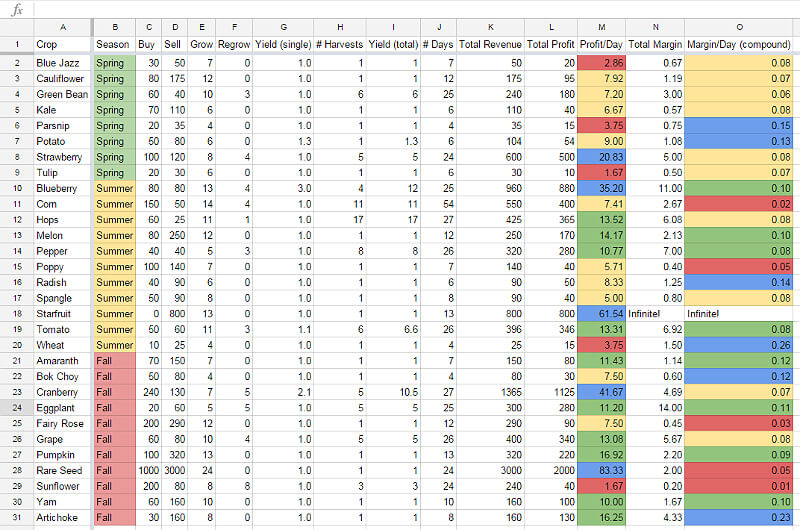
Grow Potatoes in Spring (Strawberries if you have them), Blueberries in Summer, Cranberries in Fall. If you’re cash-strapped, consider Parsnips (Spring), Radish (Summer), and Artichoke/Amaranth (Fall).
I’ve been playing Stardew Valley pretty much constantly since launch and am in love. I have a ton of nostalgia for Harvest Moon on the SNES and Stardew Valley improves on that in every possible way while adding a bunch of new stuff as well.
I’ve been looking at crop guides trying to maximize profit (the most popular seems to be this one). So far I’ve only seen ones that calculate profit-per-crop-per-day, which is useful, but it’s only half the picture.
For example, consider two crops:
- Lettuce costs 50g/seed, grows in ten days, and sells for 100g
- Kumquats costs 5000g/seed, grows in ten days, and sells for 5500g
If you’re only looking at profit per day, then kumquats looks really good – that’s 50g/day, 10x the 5g/day you get from lettuce! What you’re missing is of course that kumquat seeds cost a lot more, so you can plant more lettuce than kumquats as long as you don’t have infinite money.
You really care about two things:
- Late in the game, you care about profit per day. You’re limited by sprinkler space or by the energy you use to water crops, so you want each individual tile to make as much cash as possible.
- Early in the game, though, you care about margin per day. You want to buy the seeds that return the most for your investment, and you’re okay buying more, cheaper, individually-less-profitable seeds if that’s what it takes.
In the graph I linked above, the farther a crop is from the bottom left corner, the better it is in general. As long as you’re cash-limited, you want to pick crops farther up on the graph. Parsnips are a great investment in your first Spring, for example, with Potatoes a close second. Later, once you’re limited by how many individual crop tiles you can maintain, you want crops farther to the right. Cranberries are absolutely fantastic in Fall if you’re rich enough to max out your farm space while buying the relatively expensive seeds.
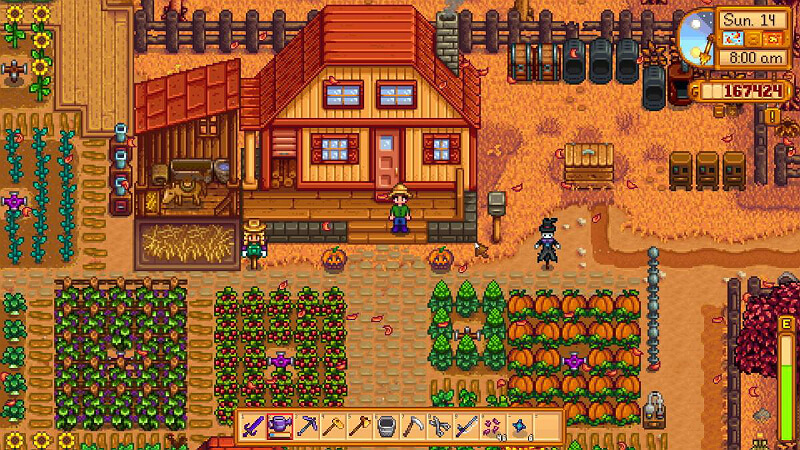
Some tips you can get from the graph:
- Some crops are simply a lot better than others. In Spring, for example, Potatoes offer both better profit and better margin than Green Beans.
- Corn, in particular, isn’t nearly as good as people think. I think it’s because people see the high profit-per-crop-per-month in Fall, once the plant has already grown. The issue is basically that to earn that “free” corn in late Fall, you locked up your money in Corn seeds way back at the beginning of Summer. That money could have gone into other crops that would return a profit much earlier, letting you replant, cycle through more plants, and earn even more profit instead. This simulation (Img 1) shows the huge difference between growing Corn and Blueberries in the summer – with Corn you can earn about 85k by the end of Fall, but with Blueberries you can earn 640k because cashing out your Blueberries lets you buy a lot more Cranberries in Fall.
- If you’re using Kegs and Preserve Jars to make artisan goods, those multiply the base value of the crop you’re using, so you want a crop with a high sell value. Melons (Summer) and Pumpkins (Fall) are great for this, even though they’re pretty mediocre crops on their own.
- Crops have uses beyond pure profit, so of course, you won’t just be planting straight Potatoes/Blueberries/Cranberries. A big chunk of my farm is actually dedicated to growing gifts for townspeople. Hops are also great to grow because they’re cheap, yield a ton (17 units over the course of Summer), are a great way to restore energy (+45 energy per), and are Liked by most townspeople if you don’t have a Loved gift for someone.
- Strawberries are great if you have the seeds, but investing in seeds one year to grow the next isn’t worth it unless it’s coming from spare cash and wouldn’t impact your ability to buy seeds throughout the year. In particular, given, say, 5000g, you’re (much) better off letting the 5000g sit idle until Fall, using it to plant Cranberries, and then using the proceeds to plant Potatoes the next Spring, rather than have that 5000 tied up in unusable Strawberry seeds for a year. This means it’s almost certainly not worth it to buy Strawberry seeds your first Spring.
Img 1:
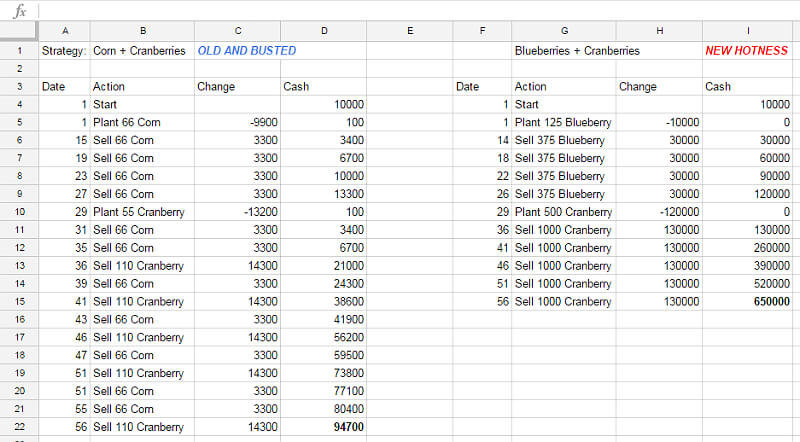
Hope this was helpful!
Original Link – Continuation of discussion


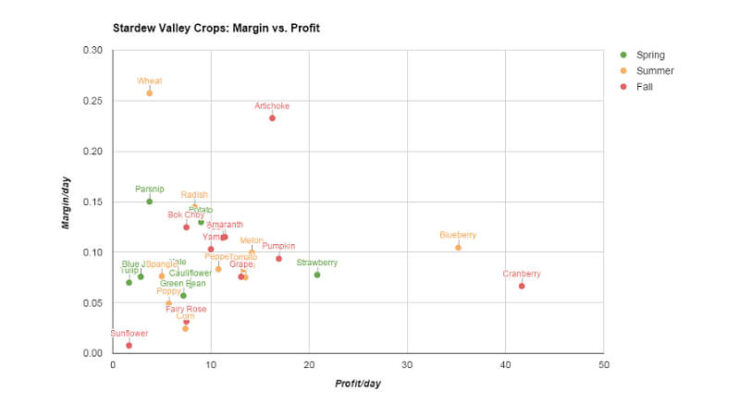
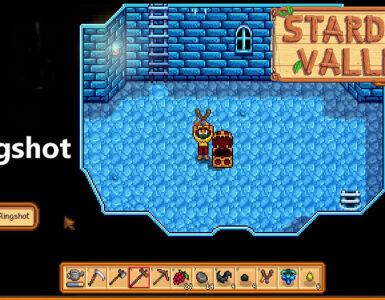
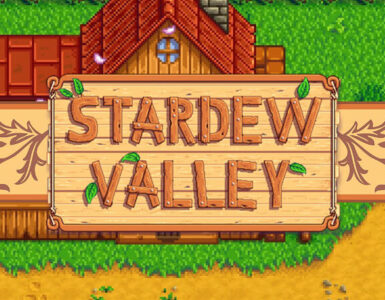

Add comment